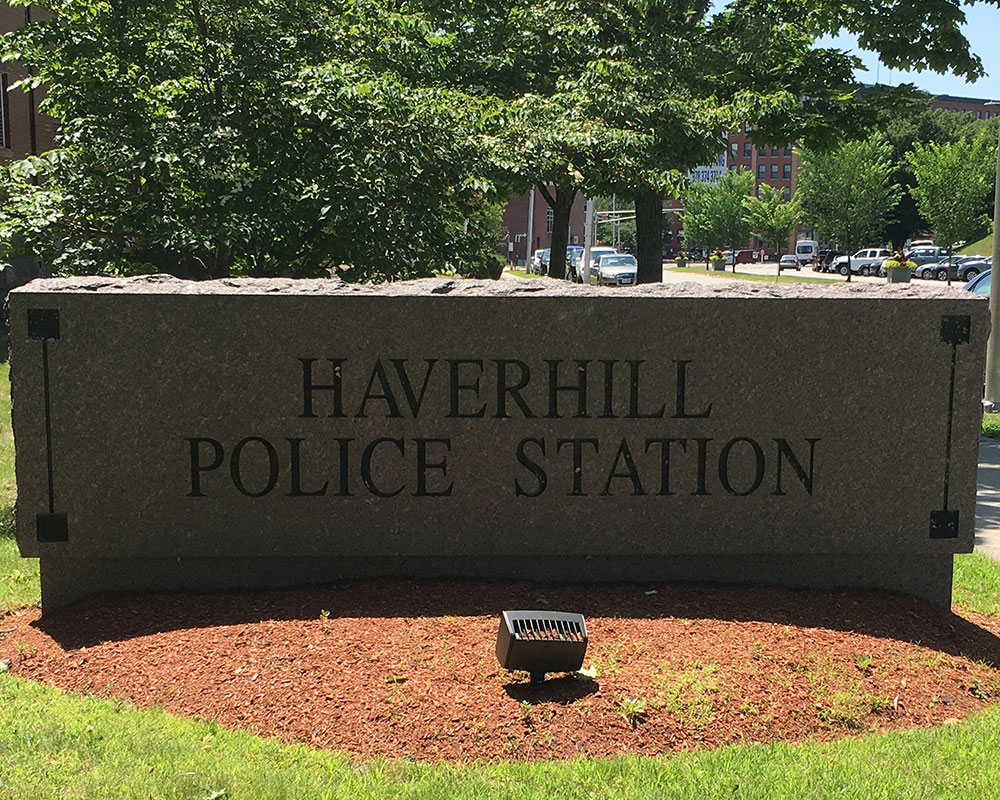The state’s 2020 police reform law is forcing changes in how Haverhill appoints constables— typically private individuals that serve notices locally, but have arrest powers in some cases.
Haverhill city councilors voted Tuesday night to ask the city solicitor to revise a city ordinance governing the conduct of constables, as well as the application to become one. Police Chief Robert P. Pistone explained the Massachusetts Peace Officer Standards and Training commission recently decreed that any person who can make an arrest must first receive a certificate from the agency. Though they mostly deliver orders like evictions, foreclosures and subpoenas, he said constables sometimes arrest people to force them to appear before a court or in response to certain breaches of the peace.
He recommended that before the mayor may appoint a constable, the city requires applicants who make arrests to have the certificate. Responding to a question from councilor John A. Michitson about constables seeking reappointment this year, Pistone said he had turned some away because they did not meet the commission’s standards.
“If we were to write an ordinance saying that, in order to effect an arrest, you’d have to be POST-certified, then I would think we’d be able to reappoint or newly appoint existing constables, or anybody that applied,” he said.
If the city allowed uncertified constables to continue working—even temporarily—Pistone said it would be vulnerable to a lawsuit. Councilor Melissa J. Lewandowski suggested the ordinance give existing constables a deadline to meet its new requirements or relinquish their position.
The Peace Officer Standards and Training commission—or POST—came out of the 2020 police reform bill signed by Gov. Charlie Baker in the wake of the police killings of George Floyd and Breonna Taylor that summer.
“Massachusetts wanted to join what a lot of other states were already doing, so that there was standard training, so you didn’t have bad officers jumping from department to department,” Pistone said. “So, really, it’s a lot like a license now. Just like somebody has a medical license, license to practice law—same thing for police.”
Last year, the commission created new guidelines for constables, according to Pistone. Certification involves the applicant attending a full-time police academy, their police department sending background checks to the body and the police chief attesting to their moral character. They must go through this process every five years.
Lewandowski motioned to send a letter to the city solicitor asking to “beef up” Haverhill’s ordinances. “I pulled our ordinance, and it is thin. Basically, if you have $200 you can be appointed to become a constable in the city of Haverhill,” she said. “There’s nothing in here about training. There’s nothing in here about restrictions on driving around in unmarked cruisers, with lights, in terms of when they display their badges, what they’re carrying.”
As the position goes back to “colonial days,” Pistone said the laws are “antiquated.” To underscore the need for a new approach, Lewandowski pointed to troubling behavior of constables across the state.
“There have been some really, understanding these are outlier-type situations, with constables using the full extent of their powers with pretty bad results—shooting Boston police officers, I think that was in 2019, tasing suspects, pursuing people in their cars with windows tinted, blue lights on vehicles, etcetera,” she said.
She recommended Haverhill follow the City of Salem’s lead, which has its constables take out a surety bond requiring they pay the town $5,000 if they fail to “faithfully” perform their duties. She continued the ordinance should give the mayor the power to remove them for “gross misconduct,” stipulate their dress and vehicles and require training.
A member of the public who said he had worked as a constable in Haverhill for 25 years admonished the council to research the commission further, emphasizing that certification is necessary only for the rare physical arrest. Because of what he described as his contractor status, he questioned the city’s liability for constables’ actions. He added that the pandemic and the police reform bill have made operating in the city difficult in recent years. No councilor addressed his comments.
